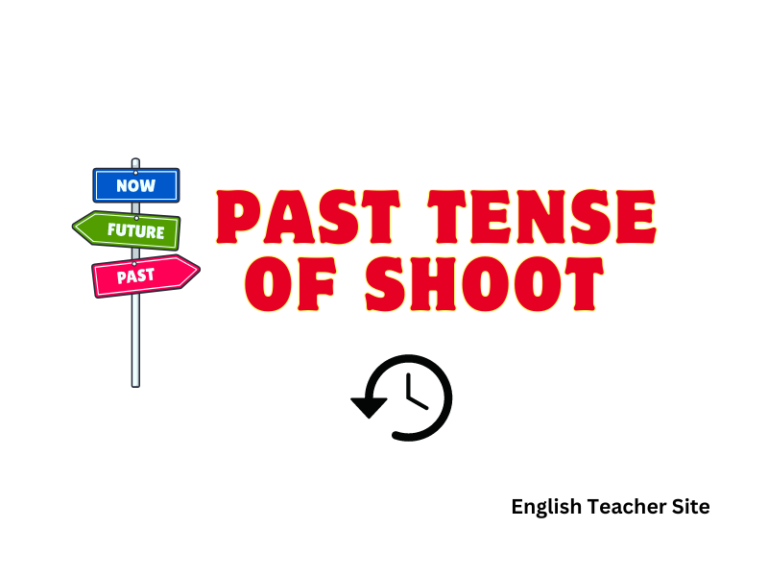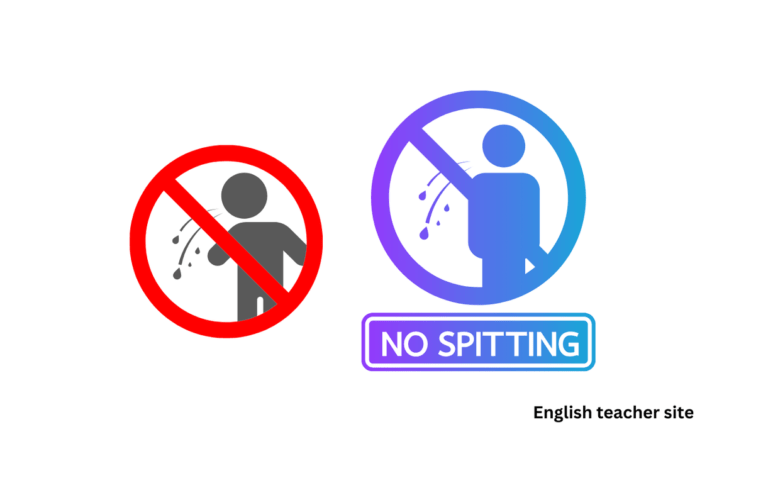What’s the Past Tense of Seek: Seeked or Sought? Understanding Correct Usage

- The past tense of “seek” is “sought“, conforming to the pattern of irregular verbs.
- “Seeked” is not the correct past tense form of “seek”; “sought” is used in both past and past participle forms.
- Recognizing the correct past tense forms is essential for proper English conjugation and communication.
English is replete with verbs that don’t follow the standard -ed ending to form their past tense. The past tense of “seek” is not “seeked,” but “sought.” This follows the pattern of irregular verbs where the vowel changes to form the past tense, and no -ed suffix is added. In the case of “seek,” the conjugation is “seek” in present tense and “sought” for both the past tense and the past participle.
What’s the Past Tense of Seek: Seeked or Sought?
This verb has a non-standard past tense form that can confuse learners. The correct past tense is “sought,” not “seeked.”
Verb Conjugation for “Seek”:
| Tense | Form |
|---|---|
| Present | seek |
| Past | sought |
| Past Participle | sought |
The verb “seek” is an irregular verb in English, which means it does not conform to the regular -ed ending for its past tense and past participle forms. It is essential for students to memorize these irregular forms.
Examples in Sentences:
- Present: They seek information on their family history.
- Past: They sought information on their family history.
- Past Participle: They have sought information on their family history.
- “Seeked” is incorrect and is not recognized as a valid word in standard English.
- “Sought” is the correct past tense and past participle form of “seek.”
The importance of using “sought” in both the past tense and as a past participle cannot be overstated in professional and academic writing. It reflects a proper understanding of verb conjugation and maintains the clarity of the communication. Remember, regular practice with irregular verbs strengthens one’s grasp of English language nuances.
Understanding the Meaning of ‘Seek’ and Its Forms
In the English language, the verb “seek” conveys the action of attempting to find or obtain something.
Forms of ‘Seek’:
- Base Form: seek
- Present Tense: seek / seeks
- Past Tense: sought
- Past Participle: sought
- Present Participle/Gerund: seeking
Usage in Sentences:
- I seek the truth. (Present Tense)
- He sought advice from a specialist. (Past Tense)
- They have sought permission to start the project. (Past Participle)
- She is seeking a new job. (Present Participle/Gerund)
Conjugation Table:
| Tense | Form |
|---|---|
| Base/Infinitive | seek |
| Present | seek/seeks |
| Past | sought |
| Past Participle | sought |
| Gerund | seeking |
Difference Between Past Participle and Past Tense of ‘Seek’
In the past tense, ‘seek’ becomes ‘sought’. This form is used when referring to actions that took place and were completed in the past. For instance:
- Yesterday, she sought help from a friend.
The past participle form is also ‘sought’, but it is used differently, particularly with perfect tenses. In the present perfect tense, for example, the construction would be ‘has sought’ or ‘have sought’, indicating actions that were completed at some unspecified point in the past. Such as:
- They have sought assistance multiple times.
Here are two tables that outline the usage of ‘sought’ in sentences:
Past Tense Usage
| Subject | Verb | Example Sentence |
|---|---|---|
| He | sought | He sought a new book. |
| She | sought | She sought a quiet place. |
| They | sought | They sought a quick solution. |
Past Participle Usage
| Subject | Auxiliary Verb | Verb | Example Sentence |
|---|---|---|---|
| He | has | sought | He has sought advice on the subject. |
| She | has | sought | She has sought opportunities abroad. |
| They | have | sought | They have sought permission to leave. |
Conjugation Table
Here is a quick reference table for the verb ‘seek’:
| Tense | Form |
|---|---|
| Present | seek |
| Past | sought |
| Present Participle | seeking |
| Past Participle | sought |
Usage in Sentences
To aid understanding, consider these examples:
- Present: “She seeks advice from her mentor.”
- Past: “Yesterday, he sought assistance on the project.”
- Present Participle: “They are seeking approval for the new design.”
- Past Participle: “The approval they had sought was finally granted.”
List of Sentence Examples
- Correct: “We sought shelter from the storm.”
- Incorrect: “We seeked shelter from the storm.”
Examples of Present Tense Verb ‘Seek’ in Context
Singular Forms:
| Subject | Sentence Example |
|---|---|
| He/She/It | Seeks |
| He | He seeks a new challenge in his career. |
| She | She seeks the truth about the event. |
| It | The organization seeks to improve community health. |
Plural Forms:
| Subject | Sentence Example |
|---|---|
| They | Seek |
| They | They seek to expand their knowledge of the subject. |
- First Person Singular:
- I seek to enhance my skills through practice.
- Second Person Singular/Plural:
- You seek (or seek) a solution to the problem at hand.
When seek is used in the context of a sentence, it’s important to match the verb form with the subject in number and person while maintaining a present tense construct.
- In the tech industry, companies constantly seek innovative ideas to stay ahead.
- Scientists seek to discover new ways to treat diseases.
- Students often seek help from tutors to improve their academic performance.
Examples of Past Tense ‘Sought’ in Context
The past tense of the verb “seek” is “sought.” This form is utilized to indicate a quest or search that occurred at some point in the past. The following examples illustrate how “sought” is used in different contexts.
Sentences without a direct object:
- She sought through the archives for hours.
- They sought in the old neighborhood.
Sentences with a direct object:
- He sought her approval.
- The committee sought the best solution.
Usage in Different Tenses
To further understand the usage of “sought,” consider its appearance within various tenses:
| Tense | Example Sentence |
|---|---|
| Simple Past | They sought help immediately after the accident. |
| Past Perfect | By the time help arrived, they had already sought shelter. |
Sample Contexts
In narratives:
- The detective sought clues to solve the mystery.
- Many explorers have sought the lost city of Atlantis.
In business:
- The candidate sought a position in the firm.
- Investors sought profitable opportunities.
Examples of Past Participle ‘Sought’ in Context
Perfect Tenses with ‘Sought’:
The past participle ‘sought’ is often utilized in conjunction with auxiliary verbs to construct perfect tenses. This table highlights its use in different perfect tenses:
| Perfect Tense | Example Sentence |
|---|---|
| Present Perfect | They have sought approval for the new project. |
| Past Perfect | She had sought a mentor before starting her career. |
| Future Perfect | They will have sought all the necessary information by next week. |
Passive Constructions with ‘Sought’:
Additionally, ‘sought’ is frequently found in passive voice sentences, where the subject is the recipient of the action rather than the doer. The following table demonstrates this usage:
| Subject | Passive Sentence Example |
|---|---|
| Professional advice | Professional advice is sought by many before investing. |
| Attention | Attention was sought by the artist through his controversial work. |
| Comfort | Comfort is often sought through familiar routines. |
- In legal contexts: Sought damages for the breach of contract.
- In academic settings: The researchers sought to verify their hypothesis.
- As an action: Many sought refuge during the storm.
- Regarding relationships: He sought reconciliation after the disagreement.
The placement of ‘sought’ in sentences indicates the time when the seeking action had occurred or was completed.
Synonyms of ‘Seek’
Pursue
When someone is actively following or chasing after a goal, idea, person, or object, they are said to be pursuing it. This can often imply a longer or more sustained effort than a simple search.
- Quest for
Especially in literary contexts, to quest for something means to search for it as part of an adventurous journey.
Table: Synonyms for ‘Seek’ with Similar Meanings
| Synonym | Usage Context |
|---|---|
| Pursue | He is pursuing a degree in biochemistry. |
| Quest | They embarked on a quest to find the lost city. |
| Search | She searched the library for the rare book. |
| Explore | They are exploring options for their vacation. |
Table: Synonyms for ‘Seek’ with Context of Intention or Desire
| Synonym | Usage Context |
|---|---|
| Aspire | They aspire to become professional athletes. |
| Strive | She strives for excellence in every performance. |
| Aim | He aims to complete his novel by the end of the year. |
| Desire | They desire a peaceful resolution to the conflict. |
- Hunt for
This is often used when the object being sought is difficult to find, suggesting a more vigorous or thorough search.
- Look for
A basic synonym for ‘seek’, this phrase suggests the action of searching in a more general sense.
Scout for
To scout for something means to search for it with the intent to gather information or locate strategic advantages.
These synonyms for ‘seek’ showcase the diverse ways in which English captures the nuances of searching, aspiring, and striving towards goals or desires. Each offers a different shade of meaning, providing rich alternatives that can be chosen to best fit the intended message.
Idioms Related to ‘Seek’
Seek and ye shall find
A biblical phrase suggesting that those who search diligently for something will eventually find it. This idiom encourages proactive endeavors.
Hide and seek
A reference to the well-known children’s game in which one child covers their eyes and counts while others hide; used metaphorically, it means trying to find something that is not easily noticeable.
Here are two tables featuring idioms that use variations of ‘seek’:
| Idiom | Meaning |
|---|---|
| In search of | Actively looking for something or someone |
| Seek solace | To look for comfort in a time of distress |
| Idioms Using ‘Sought’ | Meaning |
|---|---|
| Much sought after | In high demand and desired by many |
| Sought refuge | To look for a safe place, especially during danger |
Examples of these idioms in a sentence may include:
- They went in search of the lost treasure hidden in the mountains.
- After receiving bad news, she sought solace in her family and friends.
The idiomatic use of ‘seek’ often involves the seeking of intangible things, such as truth, peace, or improvement. Below are examples utilizing bullet points:
- To seek the truth means to try to find the real facts about something.
- Those who seek revenge are often blinded by their pursuit of retribution.
- Entrepreneurs must constantly seek out opportunities to stay ahead in business.
Origin of the Verb ‘Seek’
The verb ‘seek’ has a rich linguistic history rooted in the Old English word sēcan, which meant “to go in search of” or “to inquire.” Heavily used in historical texts, ‘seek’ has maintained its core meaning throughout centuries. Despite the evolution of language, some verbs like ‘seek’ demonstrate a remarkable consistency in their basic definitions.
Old English and Proto-Germanic Roots:
| Language | Word | Meaning |
|---|---|---|
| Old English | sēcan | to go in search of, inquire |
| Proto-Germanic | sōkijaną | to seek |
From its Proto-Germanic ancestor sōkijaną, the Old English sēcan transitioned into Middle English as ‘seken.’ This linguistic travel shapes the modern usage we recognize today.
Variations Across Languages:
- German: suchen — to search
- Dutch: zoeken — to seek
- Swedish: söka — to seek
- Danish: søge — to seek
Each of these variations retains a clear connection to the activity of searching or looking for something. They emphasize the continuity and shared cognitive concept across multiple cultures and languages.
Evolution into Modern English:
The transition from Old English and through Middle English led to the current form, ‘seek.’ It has remained relatively unchanged, indicating its linguistic stability. Bold in its simplicity, ‘seek’ embodies an unadorned directive that is as pertinent now as it was over a thousand years ago in the languages of our ancestors.
Sources
- Definition of seek from the Collins English Dictionary.
- Harper, Douglas. “Etymology of seek.” Online Etymology Dictionary, https://www.etymonline.com/word/seek.
- “Seek.” TheFreeDictionary.com. https://idioms.thefreedictionary.com/seek
My name is Khamis Maiouf. I am the creator of the English Teacher Site, dedicated to providing valuable resources and insights for students around the world. With a passion for education and a commitment to helping students enhance their skills, I aim to make English teaching more effective and enjoyable for both educators and students.






